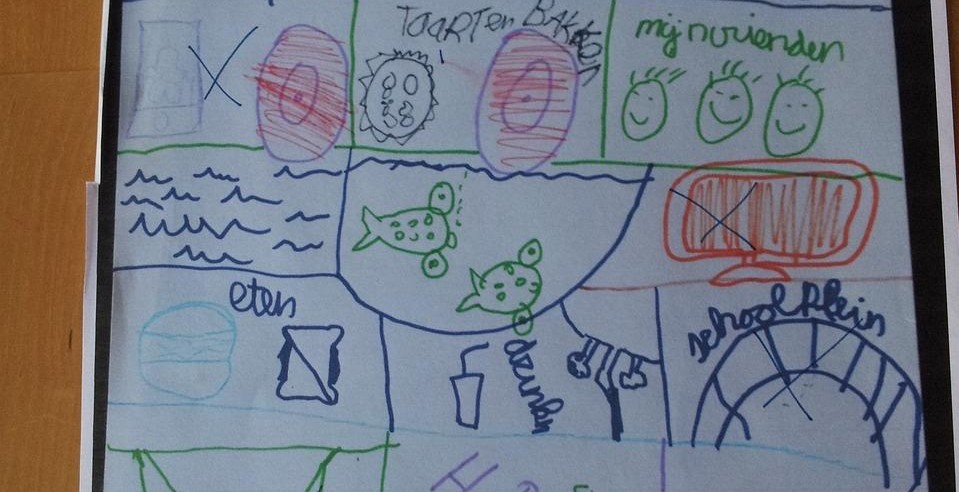How to Learn a New Language: Effective Strategies for Language Acquisition
Learning a new language can be a daunting task, but it is also one of the most rewarding experiences one can have. As a professional article writer and content creator, I have had to learn several languages to be able to communicate effectively with clients from different parts of the world. My personal experience with learning a new language has taught me that there are effective strategies that can make the process easier and more enjoyable.
The Importance of Setting Goals
Before embarking on the journey of learning a new language, it is crucial to set realistic goals. This will help you to stay motivated and focused throughout the learning process. When I was learning Spanish, for example, my goal was to be able to hold a conversation with a native speaker within six months.
The Role of Immersion
Immersion is another important strategy for language acquisition. This involves surrounding yourself with the language you are trying to learn, whether it be through watching TV shows in that language, listening to music, or even traveling to a country where the language is spoken. When I was learning French, I spent a summer in Paris, which helped me to improve my language skills significantly.
In this article, I will share more effective strategies for learning a new language that have worked for me and many others. Whether you are learning a language for personal or professional reasons, these tips will help you to achieve your goals.

Understanding Language Acquisition
Language acquisition refers to the process of learning a new language. It is a complex process that involves various factors, including cognitive, social, and environmental factors. In this section, we will discuss the overview of language acquisition and the factors that affect it.
Overview of Language Acquisition
Language acquisition can be defined as the process of obtaining the ability to comprehend and use language. It is a gradual process that starts from birth and continues throughout life. During language acquisition, individuals learn the rules of grammar, syntax, and vocabulary of a language.
There are two types of language acquisition: first language acquisition and second language acquisition. First language acquisition refers to the process of learning the first language, which usually starts from birth. On the other hand, second language acquisition refers to the process of learning a new language after acquiring the first language.
Factors Affecting Language Acquisition
Various factors can affect language acquisition. Some of the most significant factors include:
- Age: Age plays a crucial role in language acquisition. Children are more likely to acquire a new language quickly than adults.
- Environment: The environment in which an individual lives can affect language acquisition. Individuals who are exposed to a language more frequently are more likely to acquire it quickly.
- Motivation: Motivation is another essential factor that affects language acquisition. Individuals who are motivated to learn a new language are more likely to succeed in language acquisition.
- Cognitive Ability: Cognitive ability also plays a significant role in language acquisition. Individuals with high cognitive ability are more likely to acquire a new language quickly.
Understanding these factors can help individuals develop effective language acquisition strategies and improve their language learning experience.

Setting Realistic Goals
Learning a new language is a challenging task that requires dedication and effort. One of the most important factors that contribute to successful language acquisition is setting realistic goals. In this section, we will discuss why setting goals is important and how to set realistic goals for language learning.
Why Setting Goals is Important
Setting goals is crucial for language learning because it provides a sense of direction and purpose. When you have a clear idea of what you want to achieve, you can create a plan and take specific actions to reach your objectives. Goals can also help you stay motivated and focused during the learning process, especially when faced with difficult tasks or setbacks.
How to Set Realistic Goals
Setting realistic goals is essential for language learning because it allows you to avoid frustration and disappointment. Here are some tips to help you set realistic goals:
- Start with the big picture: Think about your ultimate goal, such as being able to have a conversation in your target language or passing a language proficiency exam.
- Break it down: Divide your big goal into smaller, achievable milestones. For example, learning 50 new vocabulary words per week or practicing speaking for 30 minutes per day.
- Be specific: Set goals that are clear and measurable, such as “learn the present tense of 10 irregular verbs” or “listen to a podcast in my target language for 20 minutes.”
- Be realistic: Set goals that are challenging but achievable based on your current level of proficiency and available time. Don’t set yourself up for failure by aiming too high.
- Track your progress: Keep a record of your achievements and adjust your goals as needed based on your progress.
By setting realistic goals and following through with your plan, you can make steady progress and achieve success in your language learning journey.

Choosing the Right Learning Method
There are several methods you can use to learn a new language. The right learning method for you will depend on your learning style, goals, and availability. Here are three popular methods:
Traditional Classroom Learning
Traditional classroom learning is a popular method of language acquisition. In this method, you attend classes with a group of other language learners and a teacher. The teacher uses various teaching techniques to help you learn the language, including lectures, group discussions, and role-playing exercises. This method is great for those who thrive in a structured environment and enjoy face-to-face interactions with instructors and peers.
Self-Study
If you prefer to learn at your own pace and have a busy schedule, self-study may be the best option for you. Self-study involves using language learning resources such as textbooks, audio programs, and online courses to learn the language on your own. This method requires a lot of self-discipline and motivation, but it can be very effective if you are committed to your goals.
Online Learning
Online learning has become increasingly popular in recent years. This method allows you to learn a new language from the comfort of your own home. Online language courses provide interactive lessons, virtual classrooms, and online tutoring. This method is great for those who have limited access to traditional classroom learning or prefer to learn at their own pace.
| Method | Pros | Cons |
|---|---|---|
| Traditional Classroom Learning | Structured environment, face-to-face interactions with instructors and peers | May not be flexible enough to fit your schedule, limited access to instructors outside of class |
| Self-Study | Flexible, can learn at your own pace, can choose your own resources | Requires a lot of self-discipline and motivation, limited access to instructors for help |
| Online Learning | Convenient, can learn from home, interactive lessons and virtual classrooms | May not provide as much face-to-face interaction as traditional classroom learning, limited access to instructors for help |
Immersion and Practice
One of the most effective strategies for language acquisition is immersion. Immersing yourself in the language means surrounding yourself with it as much as possible. This can be done in a variety of ways, such as:
- Watching TV shows and movies in the target language
- Listening to music or podcasts in the target language
- Reading books, newspapers, or websites in the target language
- Traveling to a country where the language is spoken
By immersing yourself in the language, you will become more familiar with the vocabulary, grammar, and pronunciation. You will also start to recognize common phrases and expressions, which will help you communicate more effectively.
Another important aspect of language acquisition is practice. Practicing with native speakers is one of the best ways to improve your language skills. This can be done through:
- Conversation exchanges with native speakers
- Taking a language class with a native-speaking teacher
- Attending language meetups or events
Practicing with native speakers will help you improve your listening and speaking skills, as well as your comprehension and pronunciation. It will also give you the opportunity to ask questions and receive feedback from someone who is fluent in the language.
| Benefits of Immersion | Benefits of Practice |
|---|---|
| Increased familiarity with vocabulary, grammar, and pronunciation | Improved listening and speaking skills |
| Recognition of common phrases and expressions | Better comprehension and pronunciation |
| Opportunity to learn about the culture of the language | Feedback and guidance from a native speaker |
Overall, immersion and practice are essential components of language acquisition. By immersing yourself in the language and practicing with native speakers, you will improve your skills and gain a deeper understanding of the language and culture.

Staying Motivated
Learning a new language can be a daunting task, and it’s easy to lose motivation along the way. Here are some tips to help you stay motivated:
Finding Motivation
1. Set achievable goals: Start with short-term goals that you can easily achieve. This will help you build momentum and keep you motivated to continue learning.
2. Find a language learning partner: Learning with a partner can make the process more enjoyable and motivating. You can practice speaking with each other and keep each other accountable.
3. Use language learning apps: There are many language learning apps available that make learning fun and engaging. These apps can help you track your progress and provide motivation through rewards and gamification.
Overcoming Challenges
1. Don’t be afraid to make mistakes: Making mistakes is a natural part of the learning process. Don’t let fear of making mistakes hold you back from practicing and speaking.
2. Take breaks when needed: Learning a new language can be mentally exhausting. It’s important to take breaks when you need them to avoid burnout and stay motivated.
3. Celebrate your progress: Celebrate small achievements along the way, such as learning a new word or successfully having a conversation in your target language. This will help you stay motivated and feel a sense of accomplishment.
Remember, learning a new language takes time and effort, but with the right mindset and strategies, you can stay motivated and achieve your language learning goals.

Conclusion
Learning a new language can be a challenging but rewarding experience. With the right strategies and mindset, anyone can master a new language. Here are some key takeaways:
1. Consistency is key
Learning a language requires consistent practice. Set aside time each day or week to study and practice your new language. Consistency builds momentum and helps you retain information more effectively.
2. Immersion is powerful
Immerse yourself in the language as much as possible. Watch TV shows, listen to music, and read books in your new language. Practice speaking with native speakers and try to think in the new language as much as possible.
3. Use a variety of resources
Don’t rely on just one resource for learning a new language. Use a variety of resources such as textbooks, language apps, and online courses. Experiment with different resources to find what works best for you.
4. Stay motivated
Learning a new language can be difficult, but staying motivated is crucial. Set goals for yourself and celebrate your progress along the way. Find a language learning community or language exchange partner to stay motivated and accountable.
5. Have fun!
Learning a new language should be enjoyable. Explore the culture associated with the language and find ways to make learning fun and interesting. Remember, the journey of learning a new language is just as important as the destination.
By following these effective strategies for language acquisition, you can achieve fluency in a new language. Remember to be patient, consistent, and have fun!
